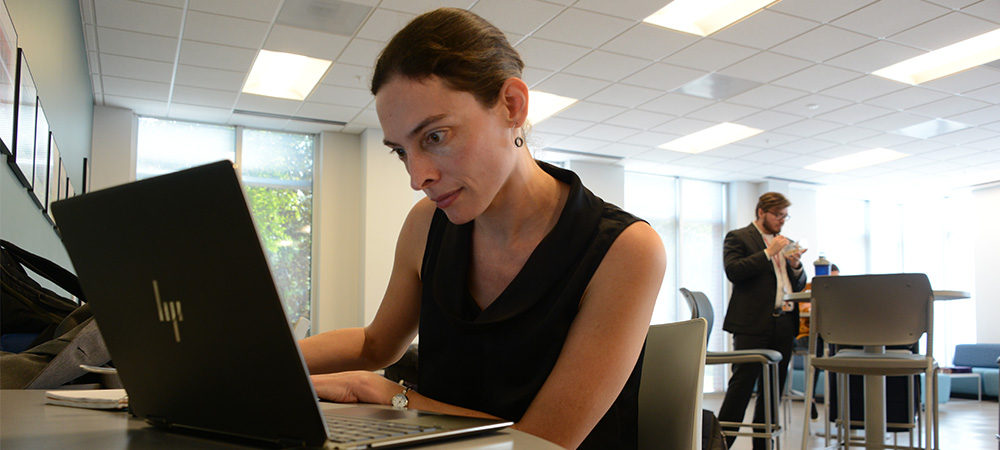
Application Pro-Tip: Make a Statement
While the personal statement is one of the most useful components of the application for our admissions committee, applicants often find it the most difficult to approach.
What is it?
Simply put, the personal statement is your opportunity to articulate 1) who you are, 2) what your professional goals are, and 3) how NC State’s MSA program will aid you in achieving those goals. It should provide a glimpse into your interests and motivations. The personal statement also serves as a writing sample, affording the admissions committee insight into your communication skills.
While the typical personal statement is 1-2 pages long, there are no specific page formatting requirements. Nor is there a singular formula for writing a personal statement. Every applicant is different — and we value those differences! A compelling statement that showcases your unique voice is a sure way to help your distinguish yourself in a pool of many other highly-qualified candidates.
So what makes a statement compelling? Here are a few basic guidelines:
- Be clear and concise. The statement should be easy to read and have a logical flow. When describing your fit for the program, highlight the academic and/or professional experiences that have prepared you for and inspired you to pursue the MSA. It is okay to share significant challenges if they are part of the narrative you want to convey, but be careful not to over-share or lose focus. Pro-tip: Developing an outline before you begin writing your personal statement will help you tell your story without rambling.
- Be creative. Our admissions committee reads hundreds of applications every year. To stand out, provide concrete examples that bring your academic and/or professional experiences to life. Pro-tip: Avoid clichés and gimmicks, such as quotes from famous people.
- Be specific. We want to know why you see NC State’s MSA program, in particular, as a good fit for you, and vice versa. You need not regurgitate information you’ve read on our website; rather, synthesize what you’ve learned about the program with what you think you’d contribute to an MSA cohort. Pro-tip: Avoid generalities. Provide the “how” or “why” behind your key points.
- Be honest. Do not oversell or falsify your qualifications. Pro-tip: If there are blemishes on your academic record, gaps in your work history, or other potential red flags in your applicant profile, address them — but don’t dwell on them. Explain the cause and resolution of the issue and then move on. Your narrative should emphasize your strengths, not your shortcomings.
- Proofread! GenAI tools can help prevent distracting spelling and grammatical errors in your personal statement; however, having a second set of human eyes read over your statement helps ensure it flows smoothly and sounds like your voice. Pro-tip: If you are applying to multiple programs, don’t use the wrong institution or program name. While an admissions committee won’t discredit your application on the basis of a minor mistake such as this, your personal statement should demonstrate accuracy and professional polish.
